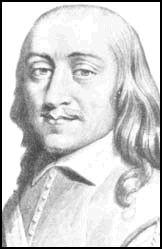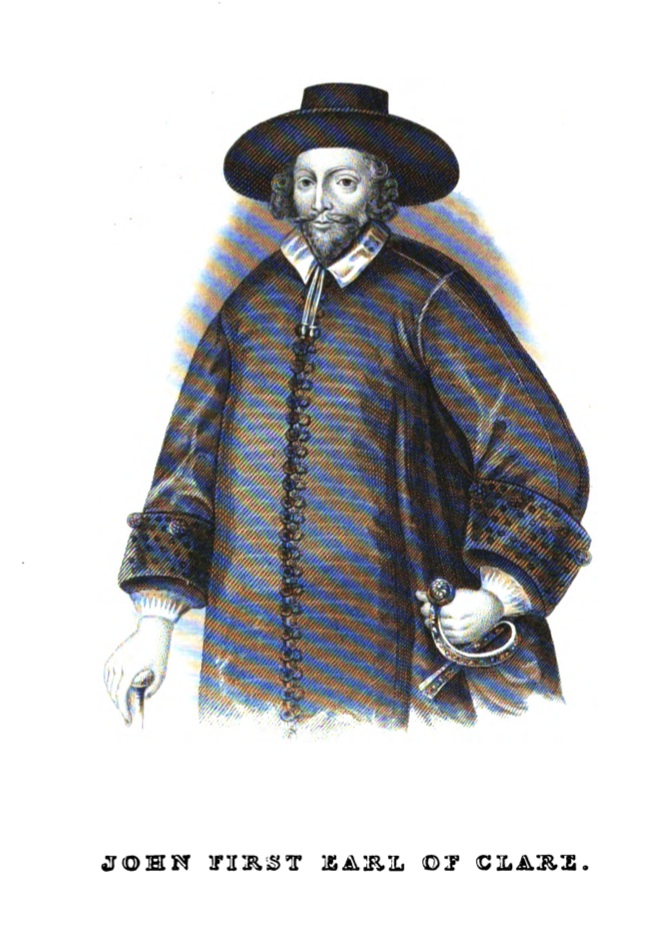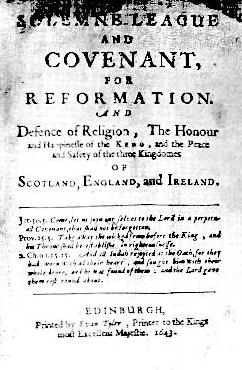|
Pride's Purge
Pride's Purge is the name commonly given to an event that took place on 6 December 1648, when soldiers prevented members of Parliament considered hostile to the New Model Army from entering the House of Commons of England. Despite defeat in the First English Civil War, Charles I of England, Charles I retained significant political power. This allowed him to create an alliance with Scots Covenanters and Roundhead, Parliamentarian moderates to restore him to the English throne. The result was the 1648 Second English Civil War, in which he was defeated once again. Convinced only his removal could end the conflict, senior commanders of the New Model Army took control of London on 5 December. The next day, soldiers commanded by Colonel Thomas Pride forcibly excluded from the Long Parliament those MPs viewed as their opponents, and arrested 45. The purge cleared the way for the Execution of Charles I, execution of Charles in January 1649, and establishment of the The Protectorate, Pro ... [...More Info...] [...Related Items...] OR: [Wikipedia] [Google] [Baidu] |
Second English Civil War
The Second English Civil War took place between February and August 1648 in Kingdom of England, England and Wales. It forms part of the series of conflicts known collectively as the 1639–1653 Wars of the Three Kingdoms, which include the 1641–1653 Irish Confederate Wars, the 1639–1640 Bishops' Wars, and the 1649–1653 Cromwellian conquest of Ireland. Following his defeat in the First English Civil War, in May 1646 Charles I of England, Charles I surrendered to the Scots Covenanters, rather than Parliament of England, Parliament. By doing so, he hoped to exploit divisions between English and Scots Presbyterian polity, Presbyterians, and English Independent (religion), Independents. At this stage, all parties expected Charles to continue as king, which combined with their internal divisions, allowed him to refuse significant concessions. When the Presbyterian majority in Parliament failed to disband the New Model Army in late 1647, many joined with the Scottish Engagers in ... [...More Info...] [...Related Items...] OR: [Wikipedia] [Google] [Baidu] |
Church Of England
The Church of England (C of E) is the State religion#State churches, established List of Christian denominations, Christian church in England and the Crown Dependencies. It is the mother church of the Anglicanism, Anglican Christian tradition, tradition, with foundational doctrines being contained in the ''Thirty-nine Articles'' and ''The Books of Homilies''. The Church traces its history to the Christian hierarchy recorded as existing in the Roman Britain, Roman province of Britain by the 3rd century and to the 6th-century Gregorian mission to Kingdom of Kent, Kent led by Augustine of Canterbury. Its members are called ''Anglicans''. In 1534, the Church of England renounced the authority of the Papacy under the direction of Henry VIII, beginning the English Reformation. The guiding theologian that shaped Anglican doctrine was the Reformer Thomas Cranmer, who developed the Church of England's liturgical text, the ''Book of Common Prayer''. Papal authority was Second Statute of ... [...More Info...] [...Related Items...] OR: [Wikipedia] [Google] [Baidu] |
Levellers
The Levellers were a political movement active during the English Civil War who were committed to popular sovereignty, extended suffrage, equality before the law and religious tolerance. The hallmark of Leveller thought was its populism, as shown by its emphasis on equal natural rights, and their practice of reaching the public through pamphlets, petitions and vocal appeals to the crowd. The Levellers came to prominence at the end of the First English Civil War (1642–1646) and were most influential before the start of the Second English Civil War, Second Civil War (1648–49). Leveller views and support were found in the populace of the City of London and in some regiments in the New Model Army. Their ideas were presented in their manifesto "Agreement of the People". In contrast to the Diggers, the Levellers opposed common ownership, except in cases of mutual agreement of the property owners. They were organised at the national level, with offices in a number of London inns ... [...More Info...] [...Related Items...] OR: [Wikipedia] [Google] [Baidu] |
Personal Rule
The Personal Rule (also known as the Eleven Years' Tyranny) was a period in the history of England from the dissolution of the third Parliament of Charles I in 1629 to the summoning of the Short Parliament in 1640, during which the King refused to call the next parliament and ruled as an autocratic absolute monarch without recourse to Parliament. Charles claimed that he was entitled to do this under the royal prerogative and that he had a divine right. Charles had called three Parliaments by the third year of his reign in 1628. After the murder of George Villiers, Duke of Buckingham, who was deemed to have a negative influence on Charles' foreign policy, Parliament began to criticize the king more harshly than before. Charles then realised that, as long as he could avoid war, he could rule without the need of Parliament. Names Whig historians such as S. R. Gardiner called this period the "Eleven Years' Tyranny", because they interpret Charles's actions as highly authoritar ... [...More Info...] [...Related Items...] OR: [Wikipedia] [Google] [Baidu] |
Parliament Of England
The Parliament of England was the legislature of the Kingdom of England from the 13th century until 1707 when it was replaced by the Parliament of Great Britain. Parliament evolved from the Great Council of England, great council of Lords Spiritual, bishops and Peerages in the United Kingdom, peers that advised the History of the English monarchy, English monarch. Great councils were first called Parliaments during the reign of Henry III of England, Henry III (). By this time, the king required Parliament's consent to levy taxation. Originally a Unicameralism, unicameral body, a Bicameralism, bicameral Parliament emerged when its membership was divided into the House of Lords and House of Commons of England, House of Commons, which included Knight of the shire, knights of the shire and Burgess (title), burgesses. During Henry IV of England, Henry IV's reign, the role of Parliament expanded beyond the determination of taxation policy to include the "redress of grievances", whi ... [...More Info...] [...Related Items...] OR: [Wikipedia] [Google] [Baidu] |
Denzil Holles, 1st Baron Holles
Denzil Holles, 1st Baron Holles, (31 October 1598 – 17 February 1680) was an English statesman, best remembered as one of the Five Members whose attempted arrest by Charles I in January 1642 sparked the First English Civil War. When fighting began in August, Holles raised a Parliamentarian regiment which fought at Edgehill before it was nearly destroyed at Brentford in November 1642. This marked the end of Holles' military career and he became leader of the Parliamentarian 'Peace Party', those who favoured a negotiated settlement with the king. A social conservative from a wealthy family, he came to see political radicals like the Levellers and religious Independents like Oliver Cromwell as more dangerous than the Royalists. Following victory in the First English Civil War, he led those who opposed Cromwell and his supporters, and was one of the Eleven Members suspended in June 1647. Recalled prior to the Second English Civil War in June 1648, he was excluded again by ... [...More Info...] [...Related Items...] OR: [Wikipedia] [Google] [Baidu] |
Roundheads
Roundheads were the supporters of the Parliament of England during the English Civil War (1642–1651). Also known as Parliamentarians, they fought against King Charles I of England and his supporters, known as the Cavaliers or Royalists, who claimed rule by absolute monarchy and the principle of the divine right of kings. The goal of the Roundheads was to give to Parliament the supreme control over executive administration of England. Beliefs Most Roundheads sought constitutional monarchy in place of the absolute monarchy sought by Charles; however, at the end of the English Civil War in 1649, public antipathy towards the king was high enough to allow republican leaders such as Oliver Cromwell to abolish the monarchy completely and establish the Commonwealth of England. The Roundhead commander-in-chief of the first Civil War, Thomas Fairfax, remained a supporter of constitutional monarchy, as did many other Roundhead leaders such as Edward Montagu, 2nd Earl of Mancheste ... [...More Info...] [...Related Items...] OR: [Wikipedia] [Google] [Baidu] |
Solemn League And Covenant
The Solemn League and Covenant was an agreement between the Scottish Covenanters and the leaders of the English Parliamentarians in 1643 during the First English Civil War, a theatre of conflict in the Wars of the Three Kingdoms. On 17 August 1643, the Church of Scotland (the Kirk) accepted it and on 25 September 1643 so did the English Parliament and the Westminster Assembly. English Parliament (First Civil War) At the time, the Protestant leaders of the English Parliament were in conflict with King Charles I. Fearing Irish Catholic troops could join the Royalist army, Parliament requested the aid of the Scots. The Presbyterian Covenanters promised their aid, on condition that the Scottish system of church government was adopted in England. This was acceptable to the majority of the English Long Parliament, as many MPs were Presbyterians, while others preferred allying with the Scots rather than losing the Civil War. After some haggling a document called "'' The Solemn ... [...More Info...] [...Related Items...] OR: [Wikipedia] [Google] [Baidu] |
Bishops' Wars
The Bishops' Wars were two separate conflicts fought in 1639 and 1640 between Scotland and England, with Scottish Royalists allied to England. They were the first of the Wars of the Three Kingdoms, which also include the First and Second English Civil Wars, the Irish Confederate Wars, and the 1650 to 1652 Anglo-Scottish War. In 1637, Charles I, then king of both Scotland and England, imposed changes in religious practice on the Church of Scotland. These were strongly opposed by many Scots who, in 1638, signed a National Covenant and became known as Covenanters. The General Assembly of the Church of Scotland then expelled bishops from the church, turning a religious dispute into a struggle for political supremacy. The new Covenanter government raised an army to prevent Charles using force to restore his authority. The First Bishops' War began in early 1639, when minor skirmishing between Covenanters and Scottish Royalists took place in north-east Scotland. In June, En ... [...More Info...] [...Related Items...] OR: [Wikipedia] [Google] [Baidu] |
Oliver Cromwell
Oliver Cromwell (25 April 15993 September 1658) was an English statesman, politician and soldier, widely regarded as one of the most important figures in British history. He came to prominence during the Wars of the Three Kingdoms, initially as a senior commander in the Parliamentarian army and latterly as a politician. A leading advocate of the execution of Charles I in January 1649, which led to the establishment of the Commonwealth of England, Cromwell ruled as Lord Protector from December 1653 until his death. Although elected Member of Parliament (MP) for Huntingdon in 1628, much of Cromwell's life prior to 1640 was marked by financial and personal failure. He briefly contemplated emigration to New England, but became a religious Independent in the 1630s and thereafter believed his successes were the result of divine providence. In 1640 he was returned as MP for Cambridge in the Short and Long Parliaments. He joined the Parliamentarian army when the First Engl ... [...More Info...] [...Related Items...] OR: [Wikipedia] [Google] [Baidu] |
Independent (religion)
In Welsh and English church history, Independents advocated local congregational control of religious and church matters, without any wider geographical hierarchy, either ecclesiastical or political. They were particularly prominent during the Wars of the Three Kingdoms as well under the Commonwealth and Protectorate. The New Model Army became the champion of Independent religious views and its members helped carry out Pride's Purge in December 1648. Unlike their Presbyterian allies, Independents rejected any state role in religious practice, including the Church of England, and advocated freedom of religion for most non-Catholics. Their religious views led some to back radical political groups such as the Levellers, who supported concepts like Republicanism, universal suffrage and joint ownership of property. The Independents later became known as the Congregationalists, who are part of the wider Reformed tradition of Christianity. History At the outbreak of the First Eng ... [...More Info...] [...Related Items...] OR: [Wikipedia] [Google] [Baidu] |
Church Of Scotland
The Church of Scotland (CoS; ; ) is a Presbyterian denomination of Christianity that holds the status of the national church in Scotland. It is one of the country's largest, having 245,000 members in 2024 and 259,200 members in 2023. While membership in the church has declined significantly in recent decades (in 1982 it had nearly 920,000 members), the government Scottish Household Survey found that 20% of the Scottish population, or over one million people, identified the Church of Scotland as their religious identity in 2019. In the 2022 census, 20.4% of the Scottish population, or 1,108,796 adherents, identified the Church of Scotland as their religious identity. The Church of Scotland's governing system is Presbyterian polity, presbyterian in its approach, therefore, no one individual or group within the church has more or less influence over church matters. There is no one person who acts as the head of faith, as the church believes that role is the "Lord God's". As a pro ... [...More Info...] [...Related Items...] OR: [Wikipedia] [Google] [Baidu] |








